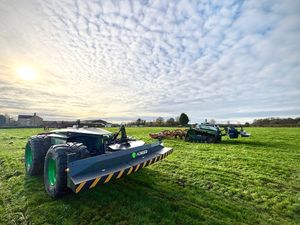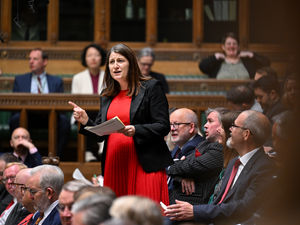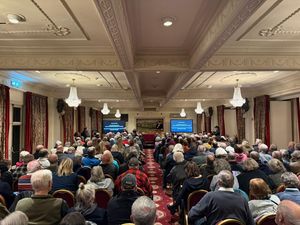Badger cull 'could drive sick animals into Shropshire'
The decision to expand the badger cull could lead to disease-ridden animals being driven into Shropshire, a group has claimed.
John Hughes, of Shropshire Wildlife Trust, warned that extending the badger cull to cover Staffordshire, Cheshire and Herefordshire could simply lead to animals carrying bovine TB fleeing to the county to escape.
Yesterday the Government gave the go-ahead for 32 new areas across 10 counties to cull badgers. But while Natural England received applications to cull badgers at 63 different locations across, no licences were granted in Shropshire.
However, licences were granted in neighbouring Staffordshire, Herefordshire and Cheshire.
Mr Hughes said while he was glad that the cull would not be taking place in Shropshire, he feared the decision could lead to an increased risk of infection in the county.
"We haven't got the culling taking place here, but because it's all around us, I believe inevitably sick badgers will be driven into Shropshire," he said.
Mr Hughes said the cull was based on 'bad science', saying that vaccination was a far cheaper and more effective way of reducing the disease.
The cull was first introduced five years ago in Gloucestershire and Somerset.
Government data shows TB instance in cattle have halved in those two areas since the cull began.
Evidence
In Gloucestershire, the incidence of TB fell from 10.4 per cent before culling started to 5.6 per cent in the fourth year of the cull, while in Somerset it dropped from 24 per cent to 12 per cent.
Farming minister George Eustice said the figures were evidence the strategy was working.
"Bovine TB remains one of the greatest animal health threats to the UK," he said.
"There is no single measure that will provide an easy answer which is why we are committed to pursuing a wide range of interventions to protect the future of our dairy and beef industries and eradicate the disease within 20 years.
"No-one wants to be culling badgers forever so the progress is encouraging."
But Mr Hughes said the data related to just two areas, and was not strong evidence to suggest the policy was working.
"To shoot a badger costs £500, to vaccinate a badger costs £80 to £85," he said.
Opponents of the policy say the latest expansion will see 40,892 badgers killed by the end of this year, more than during the previous five years of the badger cull combined.





